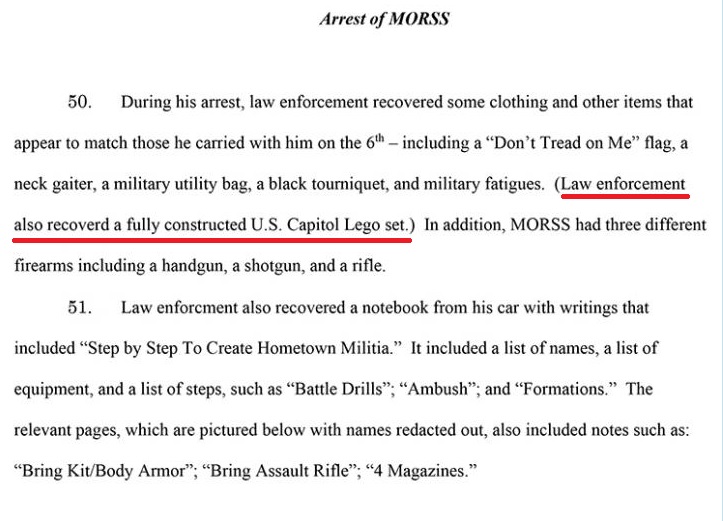The Week
Trump's Jan. 6 defense is a political gift to Democrats
Ryan Cooper
Donald Trump has returned to political campaigning, and it's already clear what he is going to obsess over for the next year and a half until the 2022 midterms: the January 6 putsch. In a recent speech, he demanded to know "who shot Ashley Babbitt?" (the QAnon believer who was shot that day while trying to attack members of Congress) and asked "How come so many people are still in jail over Jan. 6?"
This is a golden political opportunity for Democrats, if they aren't too cowardly to take it. Trump's putsch apologia is extremely unpopular, but Republicans have already given themselves no choice but to go along with it.
There are basically two kinds of Republican politician: delusional Trumpist true-believers, and amoral cynics who will say or do anything to get power. The financial executive and conservative author J.D. Vance, who is trying to get elected to one of Ohio's Senate seats, is in the latter category. Because Trump commands such loyalty among the Republican base, when Vance's 2016 tweets criticizing Trump for being morally abhorrent resurfaced, Vance had to grovel at Trump's feet for days. Otherwise, he'll never get power, you see: Trump is "the leader of this movement," he told Time, "and if I actually care about these people and the things I say I care about, I need to just suck it up and support him."
Vance knows Trump is a monster, and said as much when it seemed like Hillary Clinton was going to win the 2016 election. But now that sucking up to Trump is a necessary precondition for getting the votes of the hooting rubes, Vance will abase himself. (Alas, if polls are any guide he is going to get obliterated in the GOP primary.)
It's an instructive example of the bind Trump has forced the GOP into. A tiny handful of party members tried to push Trump out after the putsch, but they have mostly been purged. The large minority of dedicated Trump-loving cranks, like Reps. Marjorie Taylor Greene (R-Ga.) and Paul Gosar (R-Ariz.), are eager to follow Dear Leader's every whim. The rest of the party would no doubt like Trump to disappear so they aren't stuck with his insane ravings, but will do absolutely nothing to make that happen.
It's also not hard to understand why Trump has been obsessing over January 6. As Talking Points Memo's Josh Marshall writes:
For Trump everything is the Big Lie, everything is the "rigged election", which is to say everything is payback, retribution and grievance about being driven from power. The insurrectionists are the symbols of grievance, the symbols of absolute loyalty to Trump and the angry and aggrieved victims who are at the center of every Trump political demand, every argument. They are inseparable from the Big Lie because they are the ones who fought hardest to vindicate Trump's claims.
In the rest of the country, however, the January 6 putsch was extremely unpopular. An ABC/Washington Post poll done just afterwards found that 89 percent of Americans were opposed to what happened, and that 71 percent said Trump bore responsibility for what happened. A Pew poll from about the same time found Trump's approval rating collapsed to 29 percent after the putsch — the lowest level of his presidency — and that 68 percent of Americans said he should no longer be a political figure.
Now, no doubt those figures have dropped somewhat in the ensuing months. The putsch was so shocking and horrible that even many Trump voters disapproved of it, and when some conservatives commit a horrible atrocity, right-wing media is temporarily on the back foot. Since then people like Tucker Carlson have invented enough deflections, excuses, and lies to puncture that momentary attack of conscience. Now, as Trump's attempt to canonize Babbitt shows, the conservative movement is nearly finished with the move from "the putsch was harmless/an antifa false flag/the FBI did it" to "the putsch was good."
But that is not going to be a popular stance outside the hardcore Republican base. The putsch remains deeply alarming to most other Americans. And as for Babbitt, video evidence shows she was trying to break through an improvised barricade to get to the Speaker's Lobby where members of Congress were being evacuated from the mob. The Capitol Police officer in question had his gun clearly visible and multiple warnings were heard. It was only when she tried to climb over the barrier that the officer shot her, and only her. As Rep. Markwayne Mullin (R-Okla.) said afterwards, the officer "didn't have a choice … The mob was going to come through the door, there was a lot of members and staff that were in danger at the time." If the officer had not shot Babbitt, there's a strong possibility multiple members of Congress would have been hurt or killed.
Still, it remains to be seen whether Democrats can muster the confidence and energy to start a pitched political battle over such an inflammatory issue. Their typical instinct has been to ignore Trump's antics and focus on kitchen table issues like health care that are important of course but leave his violent extremism uncontested. It would be political malpractice to not point out when one's opponents have wedded themselves to a deranged maniac who tried to overthrow the government and is clearly planning to do it again.



